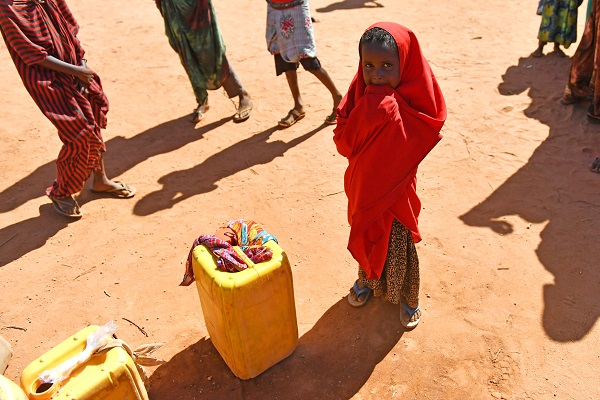Wars make costs of food assistance spiral: WFP report
Published : 20 Jul 2017, 21:30
A new global report on Thursday showed food assistance saves lives in humanitarian crises while addressing hunger's root causes, but warns that crises such as conflicts and war are drastically pushing up the cost of food assistance.
The report highlights the huge costs linked to poor humanitarian access, instability and inefficient food systems at a time of skyrocketing humanitarian needs amid multiple complex emergencies across the globe.
Steven Were Omamo, World Food Programme's (WFP) food systems coordinator, said: Our assistance provides nutritious food at the right time, in the right form, and the right place," but human-made factors imperil feeding of the world's people.
"More than anything else, the world needs to wake up, and end these wars and these conflicts, so we can make real progress in ending hunger," said David Beasley, WFP executive director in the report, "Around 800 million people -- one in nine around the world -- go to bed on an empty stomach. But man-made conflicts and other strife make it difficult to help those people."
The WFP, the world's largest international food assistance agency, has seen its costs spike by more than 140 percent over a seven-year period, from 2.2 billion U.S. dollars in 2009 to 5.3 billion dollars in 2015.
Two regions home to massive and complex food emergencies -- East and Central Africa and the Middle East and North Africa -- account for a staggering 70 percent of WFP expenditure and countries where needs are greatest are: Nigeria, Somalia, South Sudan and Yemen.
Omamo said that if the roughly 80 countries where WFP operates were better able to cope with climate-related, political, and economic shocks, another 2.2 billion U.S .dollars could be saved each year.


